Serving 108 students in grades 6-8, The Joe Barnhart Academy ranks in the top 10% of all schools in Texas for overall test scores (math proficiency is top 20%, and reading proficiency is top 1%).
The percentage of students achieving proficiency in math was 50-54% (which was higher than the Texas state average of 37%). The percentage of students achieving proficiency in reading/language arts was 85-89% (which was higher than the Texas state average of 42%).
The student:teacher ratio of 14:1 was equal to the Texas state level of 14:1.
Minority enrollment was 80% of the student body (majority Hispanic), which was higher than the Texas state average of 75% (majority Hispanic).
School Overview
Grades Offered
Grades 6-8
Total Students
108 students
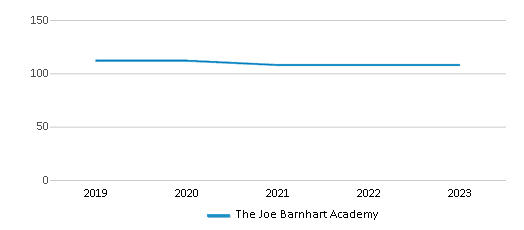
Gender %
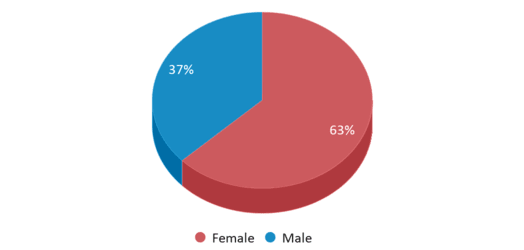
Total Classroom Teachers
8 teachers
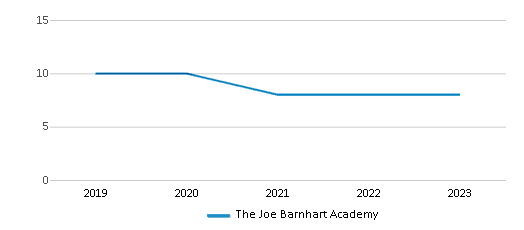
Students by Grade
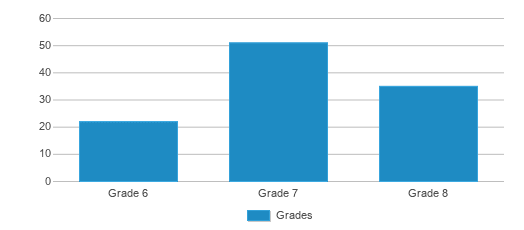
School Rankings
Math Test Scores (% Proficient)
(20-21)50-54%
37%
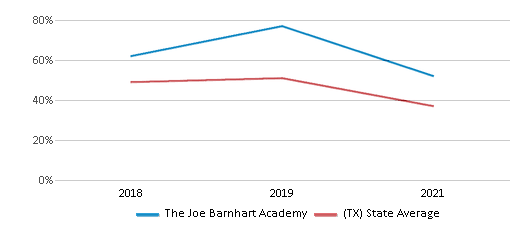
Reading/Language Arts Test Scores (% Proficient)
(20-21)85-89%
42%
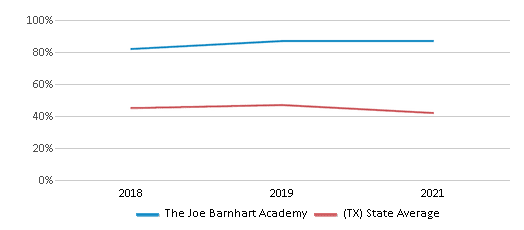
Science Test Scores (% Proficient)
(20-21)80-89%
43%
Student : Teacher Ratio
14:1
14:1
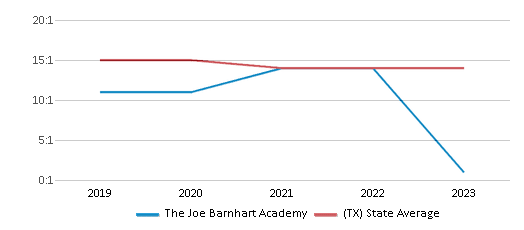
American Indian
n/a
n/a
Asian
n/a
6%
Hispanic
74%
53%
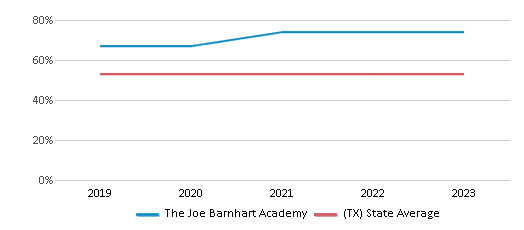
Black
3%
13%
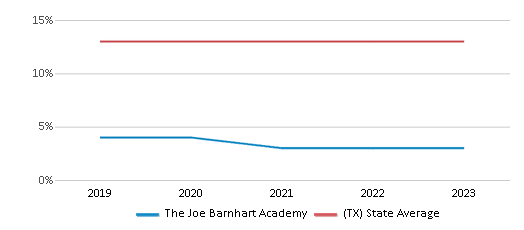
White
20%
25%
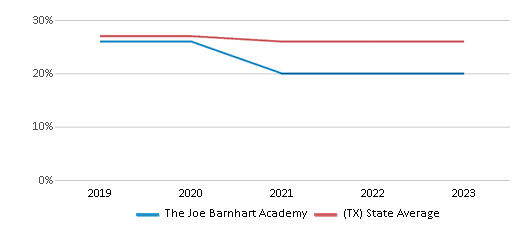
Hawaiian
n/a
n/a
Two or more races
3%
3%
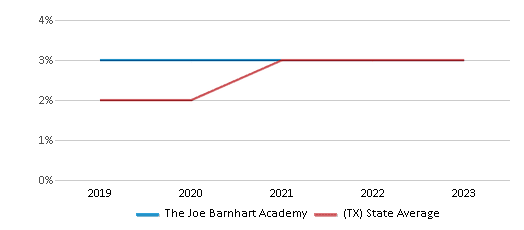
All Ethnic Groups
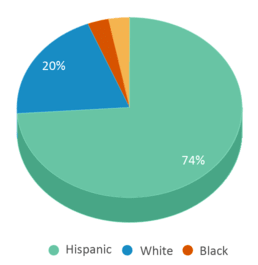
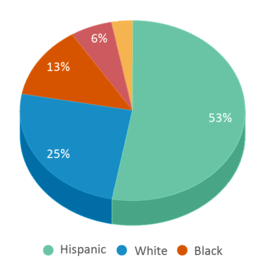
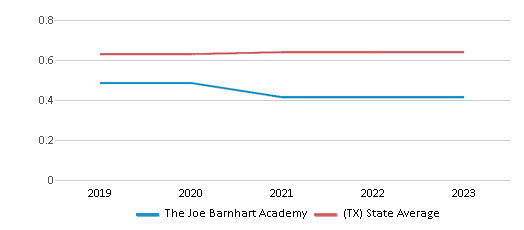
Participates in the National School Lunch Program (NSLP)
Yes
Eligible for Free Lunch
59%
57%
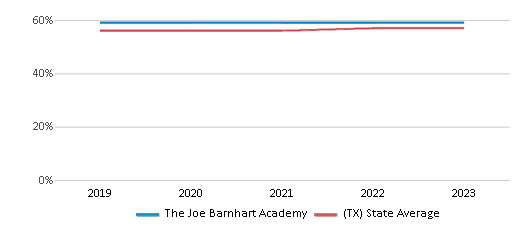
School Statewide Testing
School District Name
Source: National Center for Education Statistics (NCES), TX Dept. of Education
Frequently Asked Questions
What percent of students have achieved state testing proficiency in math and reading?
50-54% of students have achieved math proficiency (compared to the 37% TX state average), while 85-89% of students have achieved reading proficiency (compared to the 42% TX state average).
How many students attend The Joe Barnhart Academy?
108 students attend The Joe Barnhart Academy.
What is the racial composition of the student body?
74% of The Joe Barnhart Academy students are Hispanic, 20% of students are White, 3% of students are Black, and 3% of students are Two or more races.
What is the student:teacher ratio of The Joe Barnhart Academy?
The Joe Barnhart Academy has a student ration of 14:1, which is equal to the Texas state average of 14:1.
What grades does The Joe Barnhart Academy offer ?
The Joe Barnhart Academy offers enrollment in grades 6-8
What school district is The Joe Barnhart Academy part of?
The Joe Barnhart Academy is part of Beeville Independent School District.
Recent Articles

What Is A Charter School?
Explore the world of charter schools in this comprehensive guide. Learn about their history, how they operate, and the pros and cons of this educational innovation. Discover key facts about charter schools, including admission policies, demographics, and funding, as well as what to look for when considering a charter school for your child.

10 Reasons Why High School Sports Benefit Students
Discover the 10 compelling reasons why high school sports are beneficial for students. This comprehensive article explores how athletics enhance academic performance, foster personal growth, and develop crucial life skills. From improved fitness and time management to leadership development and community representation, learn why participating in high school sports can be a game-changer for students' overall success and well-being.

February 05, 2025
Understanding the U.S. Department of Education: Structure, Impact, and EvolutionWe explore how the Department of Education shapes American education, from its cabinet-level leadership to its impact on millions of students, written for general audiences seeking clarity on this vital institution.





